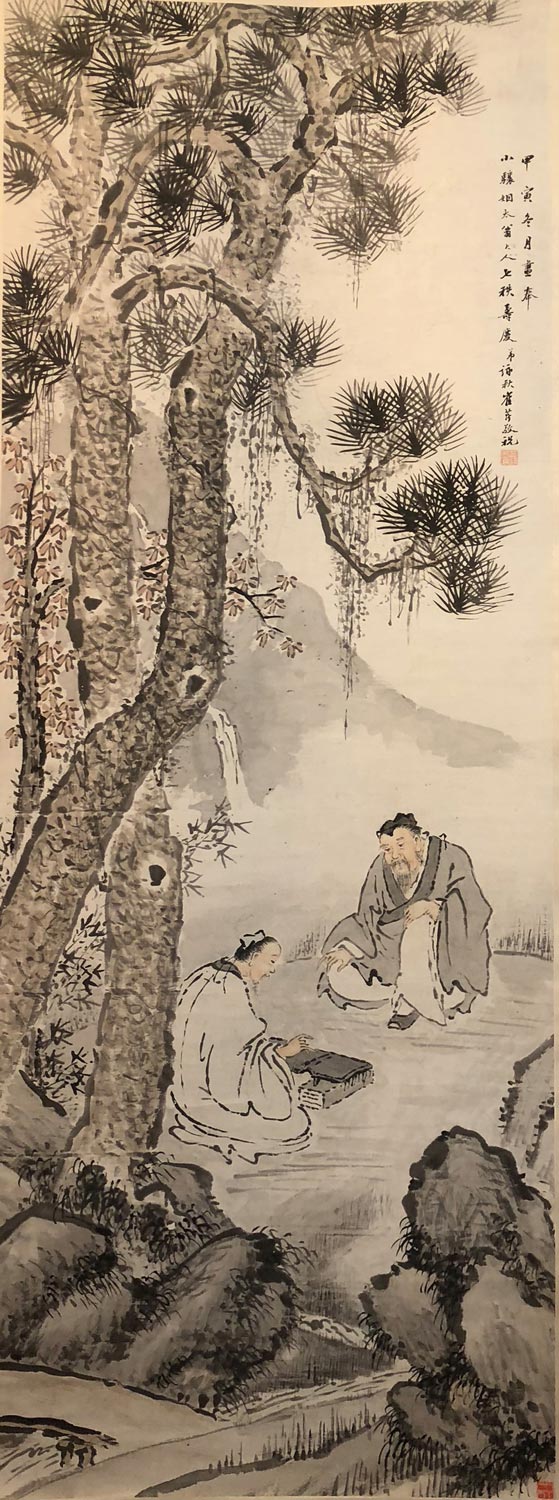Welcome to our newsletter, dear readers,
• We begin our monthly selection with an article by Eric Geoffroy on “The Eternal Feminine in Sufism,” drawing from the writings of Ibn Arabi and the Emir Abd el-Kader.
In his commentary of the Divine Name al-Qawwi (“the Strong”), Ibn ‘Arabi concludes that “in the created world there is none more powerful than woman, by virtue of a secret which is accessible only to him who knows in what has the world been engendered and through what movement has God engendered it.”
• A new addition to our Sacred Audio Collection is the popular Pu’an Mantra (Pu’an Zhou/Shitan Zhang), originally a rather esoteric hymn which has now for centuries been part of both folk religious practices and the repertoires of Chinese classical music, particularly of the very contemplative seven-string-zither, the guqin or qin.
“The silk string qin is an intimate instrument; simply playing it in the right environment can be an intimate act—even more so when playing for a soulmate.” (image source)
• Finally we present, by Jean Hani, “The Spirituality of Work and the Body Social”, the conclusion to his book on Divine Craftsmanship, explaining how any healthy/holy/whole social order includes the traditional and initiatic practice of artisanal skills.
The clearest and most detailed expression of this teaching is that transmitted to us from India in the narrative of the Bhagavad-Gita. The latter untiringly reminds us, from beginning to end, that God is the sole Agent, that all our acts should be referred to Him and that, consequently, our attitude should be one of detachment… We need to be detached from the goals and results of our actions; we should not act with the goal in mind and in view of our interest or our pleasure… Obviously it is not a question of despising the pleasure or interest engendered by an act, but only of according them second place.




